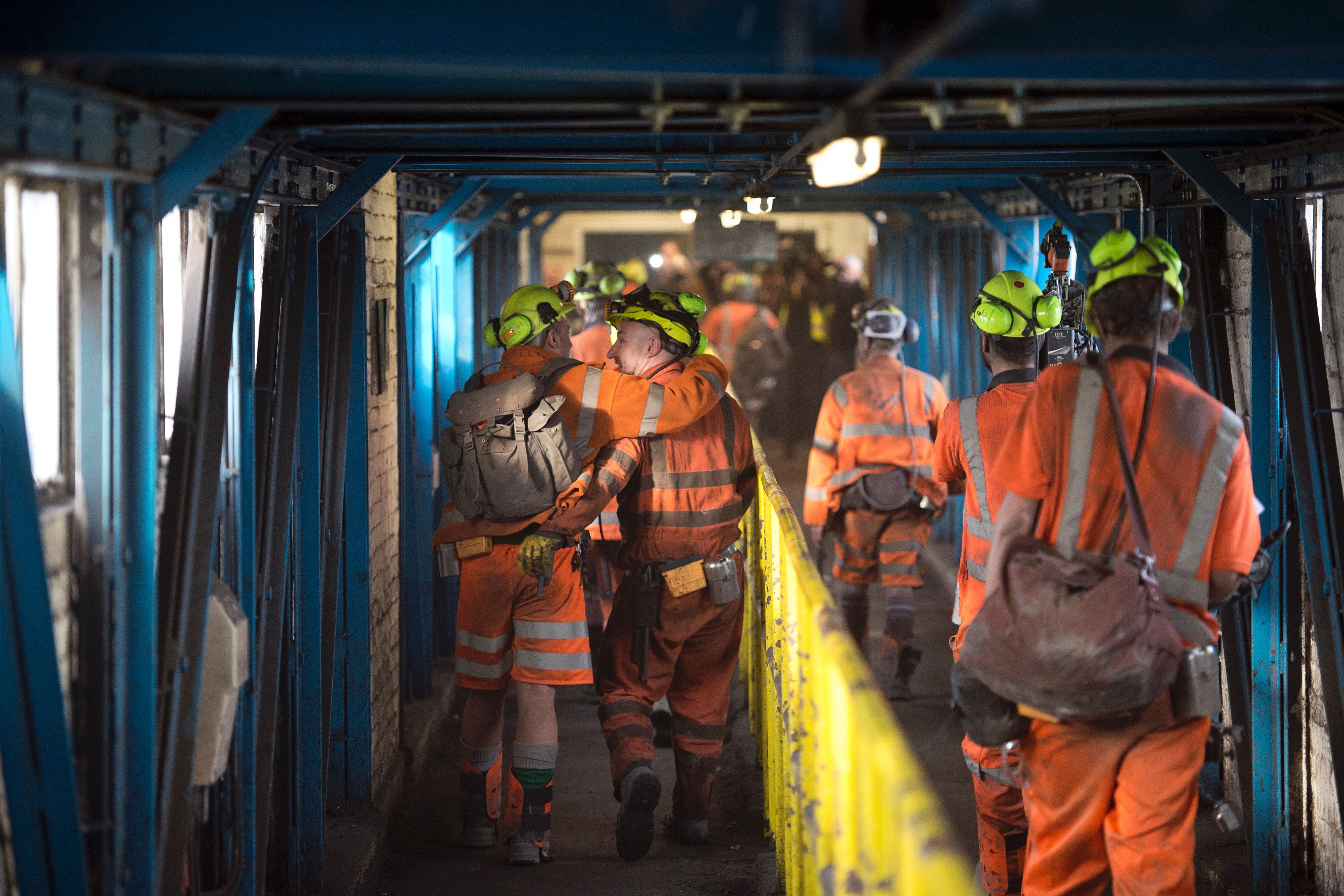UK coal belongs in the history books – Boris Johnson should leave it there
West Cumbria deserves better. The region could and should be at the heart of the bright green future this government has promised to build

Shortly after surviving the vote of no confidence in his leadership earlier this month, the prime minister promised to get on with the job of delivering on “what the people of this country care about most”.
In the coming days, Boris Johnson’s government has a golden opportunity to act on one of them – the climate crisis – by rejecting planning permission for a controversial new coal mine in Cumbria.
However, the signs are not good. During PMQs earlier this week, the prime minister appeared to drop a heavy hint that the mine will be approved, despite the overwhelming evidence against doing so.
Climate change is a major worry for the British public. According to the government’s latest public attitudes tracker, 84 per cent are concerned about climate change and 41 per cent are “very concerned”. Giving the green light to the UK’s first deep coal mine in 30 years would seriously undermine the battle to reduce emissions.
The chair of the climate change committee, the government’s independent adviser on the issue, has warned that opening the mine would increase global carbon emissions. And the UN secretary general, António Guterres, recently said that opening new fossil fuel infrastructure would be “moral and economic madness”.
The government’s international influence and credibility on climate change is also at stake. Action on coal was one of our government’s key messages at the UN climate summit it hosted in Glasgow last year. Approving the mine would be a case of “do as we say, not as we do”.
A YouGov poll published in November last year found that only 19 per cent were in favour of the mine, while more than twice that figure (43 per cent) opposed it.
But climate change isn’t the only reason for rejecting planning permission. The market for the coal is evaporating before the mine has even been opened. The mine would produce coking coal for making steel, with up to 13 per cent earmarked for the UK steel industry.
But one of the two main potential customers – British Steel in Scunthorpe – has expressed doubts about the coal’s suitability because of its high sulphur content. And Chris McDonald, chief executive of the Materials Processing Institute, the UK’s national centre for steel industry research, says no one in the steel industry is calling for the mine to be built.
The majority of the coal would be exported to Europe. However, demand for coking coal in Europe is expected to fall sharply in the coming years. Recent analysis from Friends of the Earth found that European steelmakers are moving away from coal and towards green production using renewable electricity and hydrogen. This shift risks turning the Cumbria coal mine into a hugely expensive stranded asset.
Since the invasion of Ukraine, the mine’s supporters have claimed that Cumbrian coal could replace Russian imports. But this simply isn’t true.
Steel plants use a blend of different types of coal, and the mine’s developer has been clear that coal produced in Cumbria has similar characteristics to that from the US east coast, not Russia. They’re not claiming that their coal would replace Russian imports. Furthermore, a UK steel industry expert has said that the Cumbria mine would not displace a single tonne of Russian coking coal.
Employment is a crucial issue for west Cumbria. The area desperately needs investment and it’s clear that one of the main reasons local people support the mine is the promise of new jobs. But with falling demand for the mine’s coal and rising emissions, new fossil fuel-based jobs are a risky business.
West Cumbria deserves better. The region could and should be at the heart of the bright green future Boris Johnson’s government has promised to build.
To keep up to speed with all the latest opinions and comment, sign up to our free weekly Voices Dispatches newsletter by clicking here
According to the Local Government Association, there is potential for more than 6,000 green jobs in Cumbria by 2030 in areas such as energy efficiency, solar power, offshore wind and low-carbon heating – and almost 600 of these could be in Copeland, the area where the mine would be built.
Investing in a greener future would not only create thousands of jobs, it would also bring other benefits. For example, a free street-by-street insulation programme, focusing on those most in need, would make homes warmer, cut energy bills, slash our use of gas and reduce the UK’s contribution to the climate crisis. The government’s impending coal mine decision will have major ramifications for years to come.
At last year’s climate summit in Glasgow, Boris Johnson hailed the agreement they’d just reached as the death knell for coal. Now it’s decision time. Will his government open a new chapter on UK coal or consign it to the history books where it belongs?
Tony Bosworth is a campaigner for Friends of the Earth
Subscribe to Independent Premium to bookmark this article
Want to bookmark your favourite articles and stories to read or reference later? Start your Independent Premium subscription today.

Join our commenting forum
Join thought-provoking conversations, follow other Independent readers and see their replies